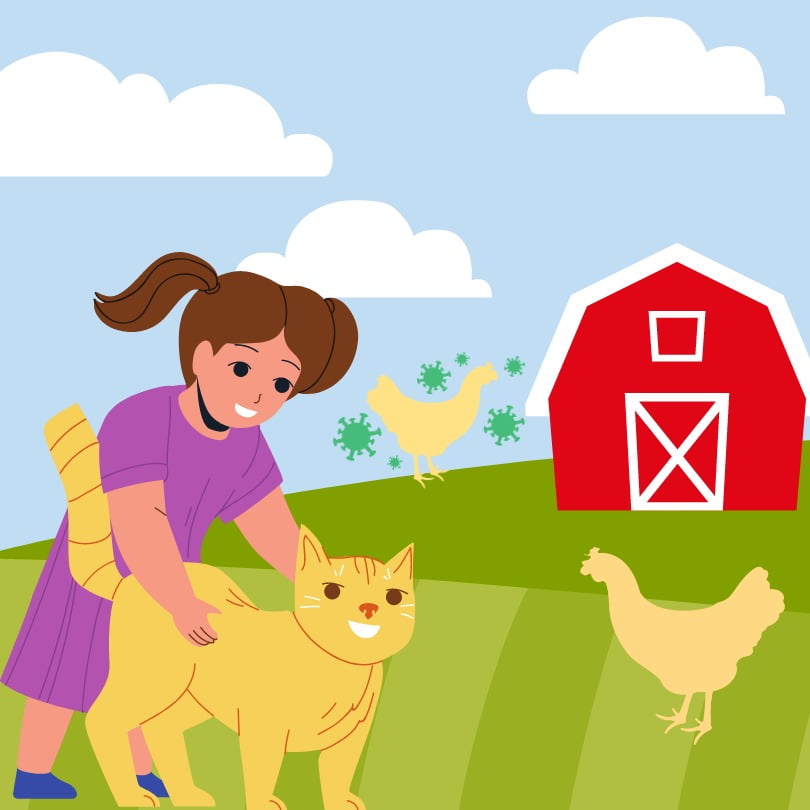The headline may surprise you. In Europe, the default cat ownership M.O. is to allow cats and indoor/outdoor life. Things are changing but that is the current method. However, the worst-ever outbreak of bird flu has hit the European continent which led to the European Food Safety Authority deciding to make the announcement. Twenty-four cats in Poland tested positive for the virus and the authority fears that avian influenza could be evolving to spread among mammals.
Notes about bird flu, domestic cats and people.
 |
| Cats on a farm as exposed to bird flu. Image: MikeB |
As you probably know, bird flu is zoonotic which means that it can be transmitted between different animal species. Even people can get it. And if cats can get it from birds, then theoretically at least cats can give it to people. The disease has the potential for being quite serious. I suppose there is even a technical possibility that it could create another pandemic.
Since late 2021, bird flu has killed millions of birds in Europe and in other countries. Sixty-seven countries on five continents reported (H5N1) outbreaks. More than 131 million poultry have either died of bird flu or been killed by farmers to prevent the spread of bird flu.
And although we know that 24 cats tested positive for bird flu as mentioned, outbreaks in other areas have led to 26 different species contracting the disease including farmed mink in Spain. This is highly concerning for the authorities.
The European Food Safety Authority wants there to be less exposure of the disease to domestic cats and dogs and to achieve that objective they said: "Possible measures are keeping dogs on a leash, and confining cats indoors in areas where extensive circulation of HPAI [highly pathogenic avian influenza] viruses in wild birds has been confirmed."
Around 70 domestic cats might have died of bird flu in Poland since June 23. The World Health Organisation said that "some mammals may act as mixing vessels for influenza viruses, leading to the emergence of new viruses that could be harmful to animals and humans."
They added that, "Avian influenza viruses normally spread among birds, but the increasing number of H5N1 avian influenza detections among mammals-which are biologically closer to humans than birds are-raises concern that the virus might adapt to infect humans more easily."

No comments:
Post a Comment
Your comments are always welcome.
Note: only a member of this blog may post a comment.